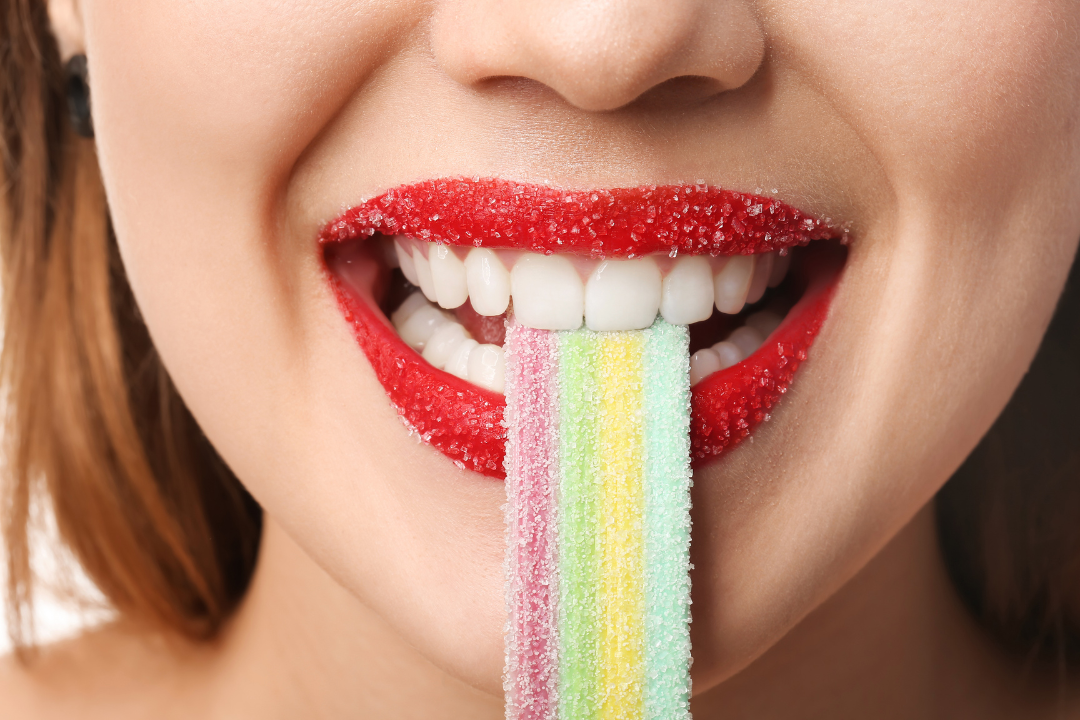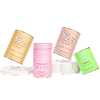Sugar And Skin: What You Need To Know About This Relationship (It’s Not Sweet)
Posted 20th August 2024

When it comes to sugar, many of us know it’s Bad, with a capital ‘B’ for health.
It’s linked to obesity. Type 2 diabetes. Cancer. And a whole list of other equally scary-sounding health conditions. And just when you thought things couldn’t get bleaker (or less sweet; pardon the pun), you learn this.
Sugar could also wreak havoc on your skin health, triggering premature aging, such as fine lines, and skin conditions like acne, psoriasis, and eczema. But … why?
What do we mean by “sugar”?
To better appreciate the bitter relationship between sugar and skin, let’s first clarify what "sugar" means since it’s an incredibly broad term.
Simple vs. complex carbohydrates
Carbohydrates come in 2 primary forms:
- Simple carbohydrates (simple sugars): Monosaccharides (consisting of 1 sugar unit) and disaccharides (consisting of 2 sugar units); the 3 most common monosaccharides are glucose, fructose, and galactose, while the 3 most major disaccharides are sucrose, lactose, and maltose
- Complex carbohydrates: Made up of 3 or more sugar units; examples include starch and dietary fiber
Thanks to their simpler molecular structures, simple carbs are readily broken down and absorbed into the bloodstream, causing a sharp rise in blood glucose levels. (You’ll understand how this negatively impacts your skin in a bit.)
Complex carbohydrates, on the other hand, are broken down slowly, leading to a “gentler” rise in blood glucose levels.
Sounds like all simple carbs are the villain in this story, right? Not so fast; there’s more to the story.
Types of simple sugars
Simple sugars can be further divided into 2 broad categories:
Naturally occurring sugars: Intrinsic to the foods they are found in, such as dairy products and fruitsAdded sugars: Sugars added to beverages and packaged foods during processing. Examples of where you’d find added sugars include sugar-sweetened drinks (e.g., carbonated soft drinks), desserts, sweet snacks, and breakfast cereal.
Added sugars are the more concerning type of simple sugar for your skin and health — and are, in turn, what we’re referring to in this article when we say “sugar”.
It all comes down to the overall nutrient profile.
Because naturally occurring sugars are found, well, naturally in foods like milk and fruits, they generally come in more modest amounts alongside many other good-for-you nutrients, such as:
- Dietary fiber (slows down digestion, “evening out” blood glucose rises and promotes gut health)
- Protein (enhances satiety, suppresses appetite, and supports healthy weight management)
- Micronutrients, like glow-giving vitamin C (in oranges) and immune-bolstering zinc (in Greek yogurt)
Compare that to added sugars, which are typically found in ultra-processed foods. Think: pre-packaged potato chips, cookies, and cakes. They offer little nutritional value beyond heaps of calories and blood-glucose-spiking simple sugars.
The relationship between sugar and skin
And now, let’s understand why that added-sugar-induced steep climb in your blood sugar levels harms your skin.
#1: Causes glycation
Overly high blood glucose levels lead to glycation, a process where sugar molecules attach themselves to collagen and elastin (proteins that give skin strength and elasticity), forming damaging by-products called advanced glycation end products (AGEs).
AGEs turn flexible proteins rigid and brittle.
Unfortunately, this is an irreversible process. Once formed, these damaged proteins cannot be repaired. Accumulatively, glycation weakens skin integrity, resulting in premature aging signs such as wrinkles, crepiness, sagging, and dullness.
#2: Increases inflammation
Glycation has also been found to set off inflammatory pathways throughout the body.
This could worsen inflammatory skin conditions such as acne, psoriasis, and eczema.
Research agrees:
Acne: A 2020 study published in JAMA Dermatology involving nearly 25,000 adults found that the consumption of fatty and sugary foods was associated with a 54% increased risk of acne, while sugary drinks increased that risk by 18%. Psoriasis: Multiple animal studies now suggest that excessive sugar intake may play a role in the development of psoriasis. In this 2020 study published in the Journal of Investigative Dermatology, for example, mice fed a diet high in sugar and fat (similar to a Western diet) developed psoriasis-like inflammation in only 4 weeks. Eczema: According to a 2023 animal study published in Heliyon, a high-sugar diet may aggravate allergic contact dermatitis, a type of eczema characterized by an itchy rash triggered by an allergen or irritant.
By the way, do you have psoriasis and/or eczema? If you’d like to spend way less time scratching, check out this article covering 5 tips to care for eczema and psoriasis — so you keep your skin happy and less itchy.
How to get out of the sticky relationship between sugar and skin
The good news is you don’t have to eliminate sugar to get your skin looking more youthful.
You just have to keep an eye on the amount of added sugars you eat; follow the guidelines set forth by the American Heart Association:
- Women: No more than 25 grams (6 teaspoons) daily
- Men: No more than 36 grams (9 teaspoons) daily
A helpful tip is to become more sugar-aware.
Spend more time studying food labels. Here’s a guideline: products are considered high in sugar if they contain more than 22.5 grams of total sugar per 100 grams, whereas they’re considered low if they have 5 grams or less of total sugar per 100 grams.
You could also take a more combative approach and proactively counteract the bitter relationship between sugar and skin by supplementing with hydrolysed collagen peptides.
Bioactive hydrolysed collagen peptides are known to:
- Stimulate fibroblast activity, increasing the production of collagen and elastin fibers in the skin
- Exert powerful anti-oxidant effects that could thwart the development or worsening of inflammatory skin conditions
That said, a friendly word of caution. Many hydrolysed collagen supplements are formulated with absurd amounts of added sugars for palatability. That … pretty much defeats the purpose of supplementation in the first place. *facepalms*
Um, what now? We have a solution for you. The Collagen Co’s products.
No matter your dietary and/or flavor preferences (Pescatarian? Here’s our Beauty Marine Collagen Powder! Want something fruity? Try our Strawberry Watermelon Collagen Powder!), we’ll have something that gives you dewy, bouncy skin while being low, low, low on added sugar content, yet is still incredibly delicious.










































